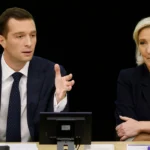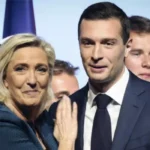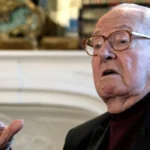Deep international divisions over the wars in Ukraine and Gaza were on display Wednesday on the first day of a meeting of G20 foreign ministers in Brazil.
Opening the meeting, Brazilian Minister Mauro Vieira, whose country has chaired the group since December, denounced the blockage of the UN Security Council in the face of these two conflicts with considerable consequences.
“Multilateral institutions are not sufficiently equipped to deal with current challenges, as demonstrated by the unacceptable paralysis of the Security Council over ongoing conflicts. This inaction directly involves the loss of human lives,” declared the head of Brazilian diplomacy Mauro Vieira during this meeting organized in Rio de Janeiro.
The UN Security Council was unable to react to the Russian invasion of Ukraine two years ago, due to a Russian veto, and struggled to speak with one voice on Gaza, with Washington blocking any call for a ceasefire, as again on Tuesday.
For their part, the United States, Israel’s primary supporter, criticized the controversial remarks of Brazilian President Luiz Inacio Lula da Silva comparing the war in Gaza to the Shoah.
During a meeting with Lula on Wednesday morning in Brasilia, US Secretary of State Antony Blinken “clearly expressed our disagreement with these comments”, said a State Department official on condition of anonymity.
The war was sparked by an unprecedented attack launched on October 7 by Hamas commandos infiltrated into southern Israel. More than 1,160 people were killed, the majority civilians, according to an AFP count based on official Israeli data.
In retaliation, Israel vowed to wipe out the Islamist movement and launched an offensive that left 29,313 dead in Gaza, the vast majority civilians, according to the Hamas health ministry.
Blinken-Lavrov reunion
Tension between Brazil and Israel, which declared Lula “persona non grata”, has continued to rise since Lula’s statement on Sunday.
“We don’t necessarily think that going into rhetorical escalation helps us move towards peace today,” confided a French diplomatic source.
The storm caused by the Brazilian head of state largely overshadows the G20 meeting.
The group’s members are also divided over the war in Ukraine, and Lula himself said the blame was shared between Russia on one side and the West and kyiv on the other.
Two years after the start of the conflict, Antony Blinken met the head of Russian diplomacy Sergei Lavrov at the Rio meeting.
Mr. Lavrov, who is due to meet Lula on Thursday in Brasilia according to a source from the Brazilian presidency, once again accused Ukraine and its allies.
“Neither kyiv nor the West have shown the political will to resolve the conflict,” he said in the Brazilian daily O Globo.
“Let multilateralism work”
In such a difficult context, the head of European diplomacy Josep Borrell nevertheless underlined the importance of a forum like the G20: “We need to show that multilateralism works in times of crisis”, he wrote on X.
Meeting of G20 Foreign Ministers in Rio de Janeiro, February 21, 2024 in Brazil
The meeting of G20 ministers, which is being held on the edge of the sublime bay of Rio, will address “global governance reform” on Thursday morning.
The subject is dear to Brazil, which wants to give more weight to countries of the South in institutions like the UN, the IMF and the World Bank.
The two other priorities of the Brazilian presidency of the G20 are the fight against hunger and global warming.
At the same time, the ballet of bilateral meetings is in full swing. French Foreign Minister Stéphane Séjourné met his Brazilian counterpart, who spoke in particular with the Russian minister.
A meeting between MM. Blinken and Lavrov would be an event in view of the new bout of tension which followed the announcement of the death in prison of Russian opponent Alexeï Navalny.
Their last interview dates back to March 2023, during a G20 meeting in India.
Founded in 1999, the G20 brings together most of the world’s major economies, as well as the European Union and the African Union. His vocation was initially mainly economic but he increasingly took up the burning issues of world news.
This article is originally published on courrierinternational.com






